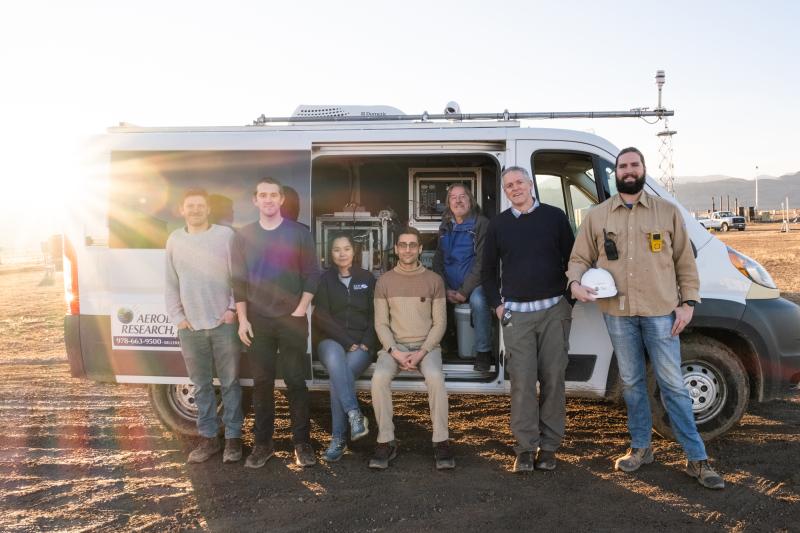Measuring hydrogen emissions: A global research collaboration
Real-world data to help maximize hydrogen’s climate potential

Hydrogen has seen significant momentum in recent years, with governments and industry exploring its role in the global transition to cleaner energy.
And while hydrogen holds real potential to contribute to deep decarbonization, particularly in sectors that are hard to electrify, it’s a leak-prone gas that can cause warming if it is released into the atmosphere, reducing the climate benefits of hydrogen systems. That means hydrogen comes with its own climate impacts that need to be understood and carefully managed.
Right now, we know very little about the scale of hydrogen emissions due to a lack of real data showing how much hydrogen is released through leaks and operational processes during its production, handling and use.
To maximize the intended climate benefits of the anticipated scale-up of hydrogen globally, we need to better understand emission rates from representative facilities and equipment types and design effective policies and best practices to minimize them.
Studying real-world hydrogen emissions to understand its climate impact
EDF is collaborating with leading academic scientists, research and technology innovators, and industry experts on a first-of-its-kind research study to detect and quantify hydrogen emissions from operational hydrogen facilities in North America and Europe.
Campaign partners:
- Academia: Utrecht University, University of Rhode Island, Cornell University, West Virginia University
- Science and Technology Providers: Aerodyne Research, TNO, TES
- Industry: Air Liquide, Air Products, Shell, TotalEnergies
- Nonprofit: Environmental Defense Fund
This study aims to deliver the most comprehensive, representative dataset of hydrogen emissions to date. The partners bring decades of scientific experience in measuring emissions; new sensing technology capable of capturing the full picture of hydrogen emissions with unprecedented speed and precision; and essential knowledge from industry regarding real-world operations.
The research findings will be made available through peer-reviewed scientific journals, with data anonymized. The data and insights will help lay the scientific groundwork for mitigation strategies and best practices to ensure hydrogen systems are operating as efficiently and cleanly as possible, to achieve maximum climate benefits.
Additional resources
- Press release
Major Collaborative Research Study Launches to Measure Real-World Hydrogen Emissions
- Project
Hydrogen Emissions Measurement Fact Sheet
- Analysis
Climate consequences of hydrogen emissions
- Analysis
Wide range in estimates of hydrogen emissions from infrastructure
- Analysis
Quantification of Hydrogen Emission Rates Using Downwind Plume Characterization Techniques
- Overview
Q&A - Hydrogen Emissions Measurement Study










